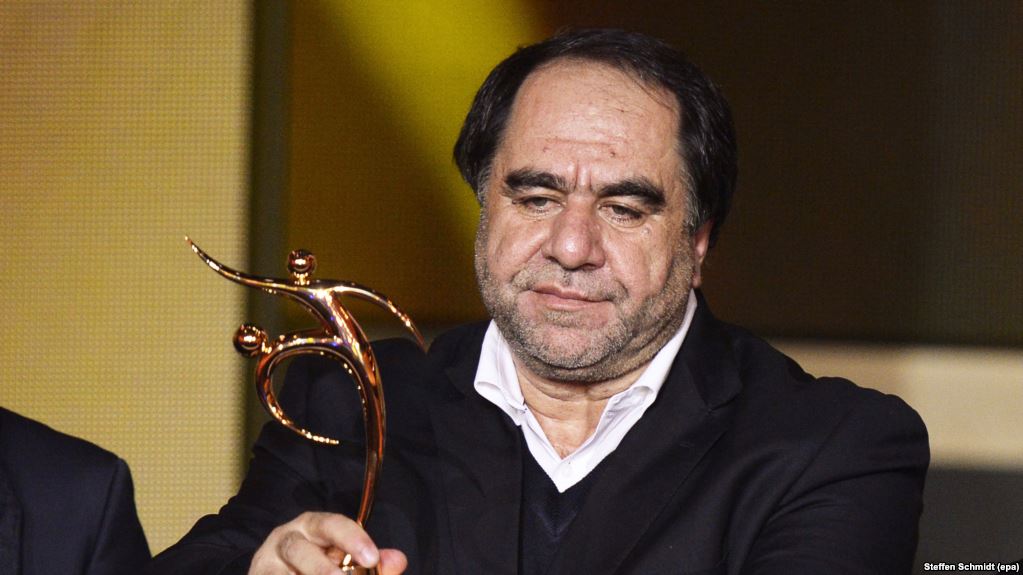By Andrew Warshaw
July 15 – The former president of the Afghan FA, Keramuddin Karim (pictured), has lost his appeal against a life ban for “appalling” sexual abuse of female national team players.
The verdict by the Court of Arbitration for Sport (CAS) came almost exactly a year after FIFA kicked out Karim and slapped a CHF 1 million fine on him after an investigation ruled that he had been guilty of “abusing his position” following complaints of “repeated” sexual abuse from 2013-18.
In its judgement upholding FIFA’s June 2019 decision, CAS had even more damning words for Karim’s crimes.
Karim, it said, had “violated basic human rights and damaged the mental and physical dignity and integrity of young female players”.
“With his appalling acts, he had destroyed not only their careers, but severely damaged their lives.”
It concluded: “The Panel determined that Keramuddin Karim should get the most severe sanction possible available under the FIFA Code of Ethics, i.e. a life ban and a fine of CHF 1 million.”
Quite why Karim thought he could get the ruling overturned is anyone’s guess and in welcoming the verdict, FIFA said CAS had upheld “a case of unprecedented gravity.”
“CAS has confirmed the importance of FIFA’s zero tolerance policy against physical, mental and sexual abuses at all levels of football, as well as the adequacy of the strongest sanctions in such cases,” FIFA said, adding that it “commends the bravery of those victims who, under dreadful personal circumstances in their home country, have come forward and allowed for justice to be served.”
“We trust that their example will encourage other victims and survivors of such terrible circumstances to report them in the future, knowing that they can count on FIFA’s support at all times.”
Karim was banned by FIFA’s ethics committee in June 2019 during the Women’s World Cup in France as it launched a probe into claims by members of the Afghan women’s national team and by Kelly Lindsey, the team’s American former head coach.
In an interview with Insideworldfootball a few months earlier, Khalida Popal, former head of women’s football in Afghanistan who first lifted the lid on Karim’s conduct and who was forced to flee the country and seek asylum in Denmark after receiving death threats, said the evidence was overwhelming.
Popal had reportedly collected accounts from former teammates that included sexual violence, death threats and rape.
Karim had previously denounced the accusations as part of a “conspiracy” and “without evidence.” But two of his aides at the Afghan FA were also banned. Sayed Aghazada, the former general secretary, and Mohammad Hanif Sediqi Rustam are each serving five years for failing to disclose suspected wrongdoing, Aghazada in the process losing his seat on the Asian Football Confederation’s executive committee.
In her February 2019 interview, Popal poured scorn on the Afghan FA’s defence of its boss.
“Of course the Afghan Football Federation have rejected my allegations. They want to find excuses for everything,” she told this website at the time. “My job as the team manager was to raise awareness of what was happening, as a tool to give a voice to voiceless women. In the beginning nobody dared come forward and say what had happened to them.”
Among her remarkable revelations was that Kerim branded nine women players whom he fired as lesbians to silence them from speaking out. “To be called a lesbian in Afghanistan is very dangerous,” said Popal. “It became clear that the Football Federation President had made up this rumour in order to silence these players. If they were called lesbians, no one would listen to them.”
Such were the dangers posed to those who gave evidence to CAS that special security measures were taken to protect them.
“The players testified from a secured place, by telephone, using a voice scrambler to protect their identity,” CAS said.
Meanwhile the international players’ union FIFPro, in also denouncing Karim’s crimes, called for a “systematic review” involving all the game’s stakeholders to tackle the problem of sexual abuse.
“These players had already been through a harrowing journey to bring the federation president to justice. Their selflessness to take a stand and bring awareness to the rights of women to play football, and to the pervasive issues of gender discrimination and sexual abuse in sport, will help future generations of footballers and other athletes,” FIFPro said.
“On behalf of them and other players around the world, and in light of other cases of abuse in international football, we urgently call for the introduction of stronger protocols by football stakeholders. This requires a systemic review to identify and fix the gaps in existing protocols, process and remedy related to sexual abuse and harassment. This review must involve consultation with players, coaches, and experts who have dealt with these issues themselves.”
Contact the writer of this story at moc.l1744708002labto1744708002ofdlr1744708002owedi1744708002sni@w1744708002ahsra1744708002w.wer1744708002dna1744708002


